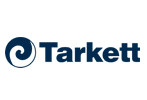Event report
Net Zero Leadership Programme: Funding your projects with green finance

What kind of funding can companies access to support their transition to net zero? In this webinar, members learnt more about green finance.
Jane Mossman of BetterFutures+ led the webinar, with Stuart Cook, Founder and Director of Net Zero Asset Finance Limited, giving a detailed presentation on the topic.
Missed the event? Read on for our summary of the main points.
What is green finance?
‘Green finance’ is becoming more and more frequently discussed. The UK government has set out plans for a ‘green recovery’ from the COVID-19 pandemic which will require a great deal of investment.
The Glasgow Financial Alliance for Net Zero (GFANZ) was announced at Cop26 by Mark Carney. It lays out a plan for how to mobilise the financial sector to get to below 1.5C of global warming by the end of the century.
The different ‘shades’ of green funding
People are getting quite creative in the ways they choose to financially structure their projects. Businesses can lease lighting off an energy company, for example, paying money in regular instalments until they own it outright.
Default pension funds typically invest in weaponry and fossil fuels, so it is worth getting in touch with your pension provider to find out which funds they have if any of these are green.
All major banks now have green-backed loans.
Decarbonisation of transport
Especially in London, there has been a steady transition from ICE vehicles to electric ones in recent years.
The EV charging infrastructure often proves to be a key obstacle for companies wishing to convert their fleets, however. It is vital to consider this issue before making any purchase. Limited grants (the maximum amount being £15,000) are available for workplace charging.
‘Benefit in kind’ tax rates for electric vehicles are due to increase slightly but remain very low.
Grants are available to support the purchase of electric vans. The grant currently stands at a maximum of £2,500 for a van of up to 2.5 tonnes, with bigger grants for larger vehicles.
Some companies have started to ditch vehicles for first-mile and last-mile deliveries, often using pedal-assisted cargo bikes.
Solar and battery storage
Installing solar panels is a well-established route towards energy efficiency and the technology has developed significantly in recent years. The efficiency of solar energy often depends on whether or not a company actually owns or has a long leasehold over a property. A short-term tenant will have to get their landlord to make the capital investment.
Battery storage, allowing companies to generate electricity, store it and potentially sell it back, has also been a fast-developing trend.
Later this year, legislation will come into force requiring landlords to achieve a ‘C’ energy efficiency rating – with fines for non-compliance going up from £5,000 to £30,000.
Financing the transition
Although everyone accepts the need to reach net zero, lenders are not always up to speed on the issue.
Broadly speaking, there are three types of financing available:
Hire purchase. This is a very common way of financing ‘hard assets’ like cars, trucks and solar panels. The lender is the legal owner of an asset until the company makes the final payment. From an accounting point of view, it is effectively the same as buying the asset outright. Lenders tend to like this arrangement as it gives them legal security.
Purchasing outright/a secured loan. If you buy an asset outright, you are subject to changes in the market value of that asset and can take out a loan on the security of it.
Operating lease. This basically amounts to renting an asset, often on a monthly basis.
What are the challenges involved in buying assets?
Lenders are keener on hard assets than on soft assets. Companies have to go to specialist lenders for the latter, and they tend to charge higher rates.
It is often much easier to fund a new asset: lenders like paying the actual supplier. There is a market for the refinancing of assets, but it tends to attract a slightly higher rate.
A company’s track record can also affect its ability to secure finance, with ‘Tier 1’ companies able to attract better rates. For early-start businesses, lenders often require personal guarantees.

